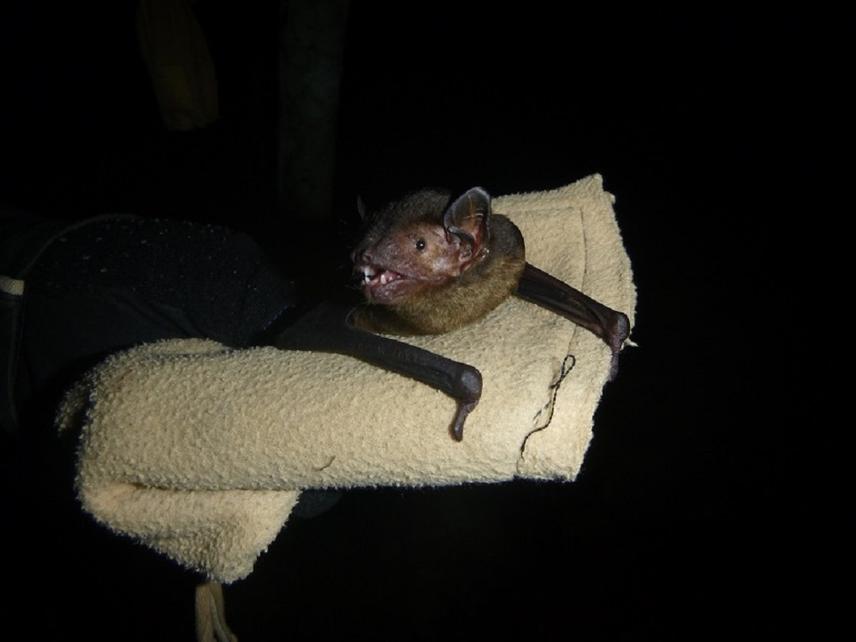Paul Tehoda
Other projects
This project aims to stimulate community conservation actions to safeguard the species and their known and potential habitats for their long term persistence in the Krokosua Hills Forest Reserve. More specifically, the project will provide alternative livelihood supports for members of fringe communities for less dependent on forest resources; increase education on conservation importance of bats through conservation awareness campaigns and stakeholder workshops among fringe communities and assess population trend of the species in the reserve. This combined effort will help us win full support of all fringe communities to protect the species and their habitat.

Robbins’ house bat (Scotophilus nucella) is a rare microbat only known from Ghana and Côte d’Ivoire and has been listed as Data Deficient on the IUCN Red list. With funding support from the Rufford Foundation since 2015, I have led a team of researchers to assess bat assemblages in the Krokosua Hills Forest Reserve (KHFR) and further initiated detailed ecological study on the S. nucella. These surveys have established the KHFR as the global hotspot for conservation of the S. nucella, where over 85% of the global population of the species known to science were recorded. Two subpopulations of the species were identified in and off the reserve at Mmem and Agyimadiem respectively. However, these two subpopulations have been faced with anthropogenic pressures especially recent illegally mining activities by some Chinese nationals, which had destructed the off-reserve habitat of the species in Agyimadiem.
Although our past two RSG projects had engendered community support for bats conservation and forest protection, illegal mining activities affecting the species’ habitat are currently on the rise by some Chinese nationals who are offering monetary incentives to locals to support them. Furthermore, the absence of livelihood support activities to help local communities to have all year-round income for sustenance increases their pressure on the use of forest resources and acceptance of monetary incentives from companies to support their illegal activities.
Consequently, this project will establish community groups and equip them with skills in beekeeping, snail rearing and mushroom farming. Thirty members of the community groups will be provided with seed funds to start one of the above alternative livelihood ventures. This will help reduce overexploitation of forest resources over a period of time. In addition, this project will intensify conservation awareness campaigns and capacity building of local conservation personnel to increase the understanding of the local people and students on the importance of the species and the benefits they could derive from ensuring that these bats’ habitats are protected. This will increase community support for the species and engender local people to undertake necessary efforts to drastically mitigate activities that are detrimental to the long-term persistence of bats. The project will also monitor population trends of the species and provide updated information on the status (abundance, demography, distribution, threats etc.) of the species, which is critical to ascertain the population viability of the species in the KHFR.